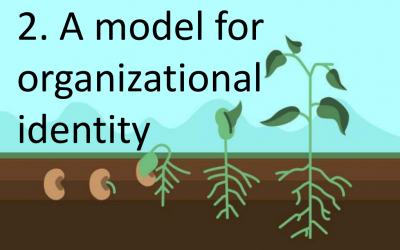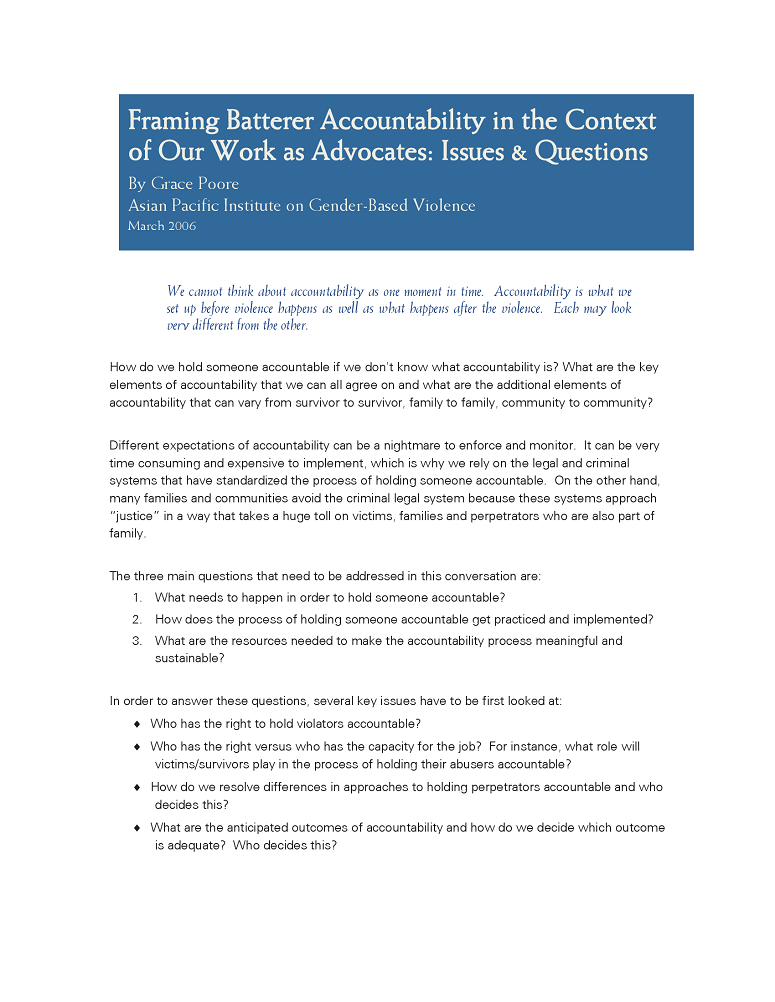Community accountability for abusers as a complement or alternative to the criminal legal system is an area of great promise as well as challenge. Accountability strategies could be contained within community-based organizations or led by them with the collaboration of community individuals, families, leaders or other institutions or organizations. Many instances of community accountability take place outside of formal domestic violence interventions, e.g., family threats to confront abusers occur outside legal structures and inside socio-familial ones, or are meted out by structures of authority such as clan leaders.
This article raises some practical and thought-provoking questions about batterer accountability, taking the victim’s perspective and community well-being into account.
Related Resources
Faithful Allies: Working with Christian Leaders
This tipsheet 1-pager, developed by Korean American Family Services (KFAM) describes some suggested practices for working with faith leaders on DV/SV response and prevention.
Faithful Allies: Working with Christian Leaders
Almost 70-80% of Korean immigrants in the U.S. reports that they attend church regularly. Korean American Family Services (KFAM) has encountered so many survivors whose faith play a very important role for their journey to healing. Because of this reason, KFAM has been working with the Korean faith community for about 8 years in order to make our community more welcoming to survivors and to train faith leaders to become supportive first responders. Through this webinar, KFAM will share our work with faith leaders, our strategy and the impact of our work.
Trauma-Informed Care for AAPI Survivors: 3-Part Webinar Series
Presented in collaboration with four AAPI community organizations and shelters, this webinar series explores the impacts of trauma on AAPI survivors and communities. Presenters share insight about working with survivors in shelter and through immigration and legal cases; and discuss best practices for providing culturally-specific, trauma-informed services, particularly within the context of COVID-19.
Building Our Communities: Organizational Sustainability
Originally presented in two parts, this workshop is designed to help increase the organizational capacity of agencies serving culturally specific and underserved communities. As we rarely get time to talk about our organizations, these slides consider how they can be healthier, what sustainability means and includes, and ways to adapt models in a way that aligns with our values, culture and what we want to accomplish.




